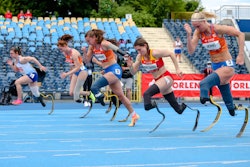With concerns about past election disputes and waning public confidence in the electoral process, the U.S. Commission on Civil Rights held a briefing on Friday to investigate voter fraud and voter intimidation. Complaints have included non-citizens voting and eligible voters casting two or more ballots as well as voter intimidation schemes in which minorities were asked to produce additional identification or were given incorrect information about voting dates and eligibility.
“The United States has never committed itself to policies of full voter participation. The failure of that commitment has made it easier for discriminatory practices that selectively disenfranchise certain citizens, in order to give a greater voice to remaining citizens,” Donna Brazile told the Commission. Brazile chairs the Democratic National Committee Voting Rights Institute (VRI) and ran former Vice President Al Gore’s 2000 presidential campaign.
“Until participation by all eligible voters is our goal, we will leave ourselves open to manipulation, election scandal and suppression of selected groups because we are not judging those policies against a principle that favors participation,” she said.
Recalling her sister’s experience of being asked to produce three forms of identification while trying to vote in Florida in 2000, Brazile said voting barriers “are erected for partisan gain.”
In the aftermath of the 2000 elections, the Democratic National Committee’s created the VRI to educate citizens on their rights to vote and help restore voters’ confidence in the electoral system. Brazile shared with the Commission several studies conducted by the DNC that highlight the growing problem of voter intimidation and suppression at polls and evidence of reoccurrence in recent elections, including problems that arose during balloting in 2004 in Ohio.
“While Ohio may have experienced the most extreme and widespread problems, it can be viewed as a microcosm for several battleground states,” Brazile said.
Dr. Robert Pastor of American University cites absentee ballots as a large source of voter fraud because blank ballots mailed to the wrong address or to large residential buildings can easily be intercepted. Voters at home, at nursing homes, at the workplace, or in church may be more susceptible to pressure or intimidation. He added that vote-buying schemes are more difficult to detect when people vote by mail.
“Any fraud and intimidation represent egregious assaults on our democracy,” said Pastor, who served on the National Security Council during the Carter administration. “We need paper audits and electronic security; and more accurate, up-to-date, and interoperable registration lists.” Panelists were divided over whether a bill requiring voters to have government-issued identification, which was passed by the U.S. House of Representatives, will restore integrity to the electoral process or impede voters’ access.
While most agreed with the concept of voter identification to unify election processes nationally, some expressed concern about creating any additional voting barriers for underprivileged voters and providing adequate support to states to implement the plans.
Mark F. (Thor) Hearne, II, former national election counsel for the Bush-Cheney 2004 campaign, told the Commission he favors free government-issued voter identification cards as a bi-partisan step toward restoring confidence in the election process.
“We need confidence in elections and the technology,” Hearne said. “We don’t want to have arbitrary decisions made by judges and lawyers. We need clear, consistent and uniformed rules.”
Commissioner Arlan Melendez expressed concern about voting challenges for American Indians who live in remote areas do not customarily carry identification.
Panelists also raised concerns about inadequate training for poll workers, whose average age is 72 nationally. “The average time of training is two hours,” Pastor said.
The Commission holds hearings and issues subpoenas to hear testimony on civil rights matters. Though it does not have enforcement powers, it refers complaints to appropriate federal, state, or local government agency or private organization for action.
-Dianne Hayes
|
Reader comments on this story: |
|
There are currently no reader comments on this story. |
© Copyright 2005 by DiverseEducation.com
![Screenshot 2024 06 05 141719[91541]](https://img.diverseeducation.com/files/base/diverse/all/image/2024/06/Screenshot_2024_06_05_141719_91541_.66613a2803b85.png?auto=format%2Ccompress&fit=crop&h=107&q=70&w=160)




![Screenshot 2024 06 05 141719[91541]](https://img.diverseeducation.com/files/base/diverse/all/image/2024/06/Screenshot_2024_06_05_141719_91541_.66613a2803b85.png?auto=format%2Ccompress&fit=crop&h=167&q=70&w=250)













